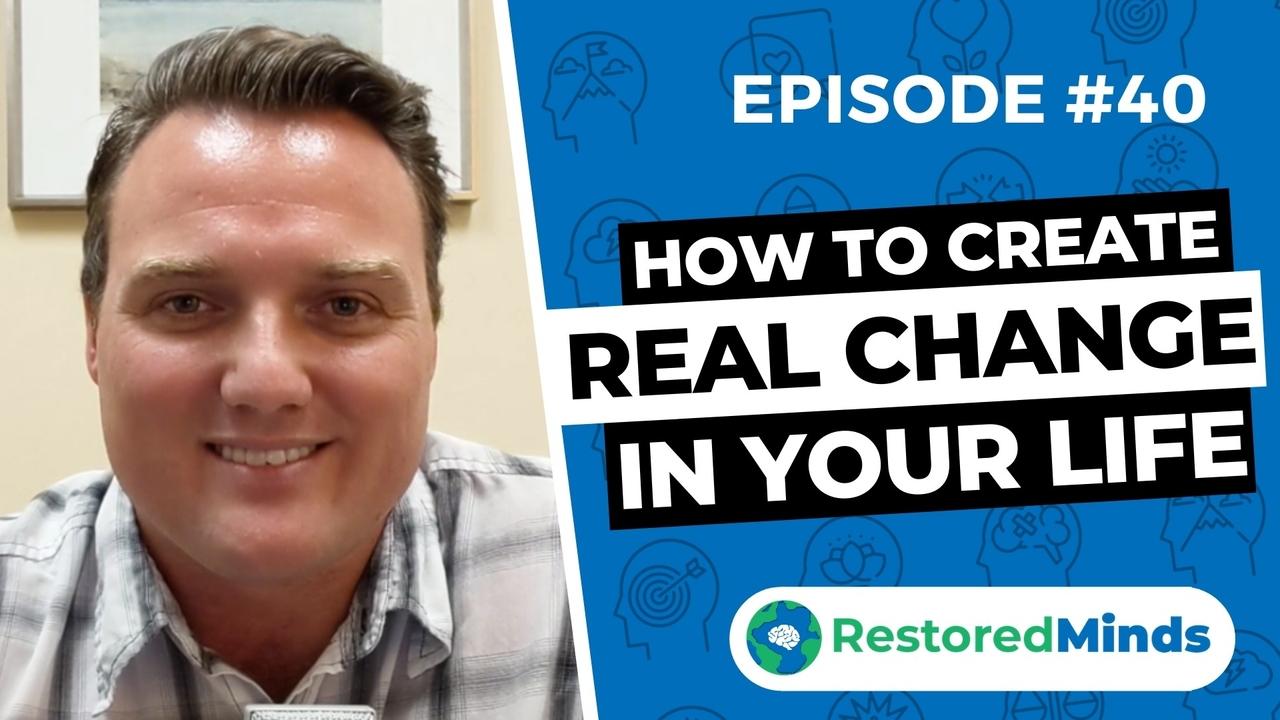How to Create REAL Change In Your Life
Jul 22, 2020
Introducing the Pyramid of Change
In today’s episode, we introduce the concept of the Pyramid of Change, a powerful structure I learned from coach Jim Fortin. The Pyramid of Change is broken down into several levels, each one representing a deeper aspect of transformation:
-
Mission and Purpose
-
Identity
-
Beliefs
-
Skill Sets/Tools
-
Behavior
-
Environment
Most of us mistakenly start at the top of the pyramid, focusing on our environment. While changing your environment might bring some immediate improvements, it’s not a sustainable solution for long-term change.
The Lowest Level: Environment
Let's begin by discussing environment, the topmost level (or lowest in terms of impact). When initiating change, many people start by altering their environment. If you're going on a diet, you might remove tempting foods from your home or avoid certain restaurants. While this can be somewhat effective, it places external control as the primary solution.
The problem here is that you can’t always control your environment. Eventually, you’ll encounter temptations or stressful situations, and without deeper changes, it becomes easy to revert to old habits.
Real Change Starts from Within
True and lasting change begins internally. Your environment often mirrors your internal state. For example, relationship issues frequently manifest as blaming external factors. However, the common denominator in multiple failed relationships is often you. Avoiding personal responsibility might feel comfortable, but it doesn’t facilitate growth.
Example from Real Life
Allow me to share a personal story to illustrate this point. A while back, my family found mold in our home, which forced us to move. Simultaneously, I experienced difficulty getting a security deposit back. Initially, I was frustrated, blaming the external circumstances. However, upon introspection, I realized several of my own decisions had led to that situation. By acknowledging my own role, I could take steps to prevent similar issues in the future.
The Importance of Personal Responsibility
At Restored Minds, we believe that individual responsibility is the cornerstone of real change. When we focus solely on altering our environment, we shirk personal accountability. This approach leads to conflict and dissatisfaction.
For example, consider the current political climate where people often try to enforce their beliefs on others for personal comfort. This creates division and doesn't address the root cause: internal discomfort. Real, lasting change begins with each of us taking a good hard look at ourselves.
Moving Forward
In this series, we’ll delve into deeper levels like identity and beliefs. These underlying elements are critical because they often operate beneath the surface. If you only address surface-level issues like environment, you'll miss the opportunity for genuine, meaningful change.
Conclusion
Creating real change involves more than just tweaking your surroundings. It requires deep, internal transformation. As we progress through this series, you’ll learn how to effect change that lasts by starting from within.
Thank you for tuning in. Stay tuned for next week’s episode, where we dive deeper into the levels of change and how you can transform your life from the inside out.
For more insights, make sure to subscribe to our channel, leave a comment below, and share your thoughts on how you're implementing these strategies in your life. Together, we can strive for REAL change.
Tags: #RealChange #Perso


